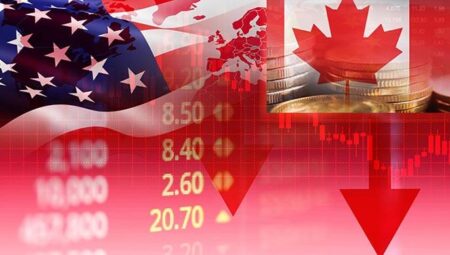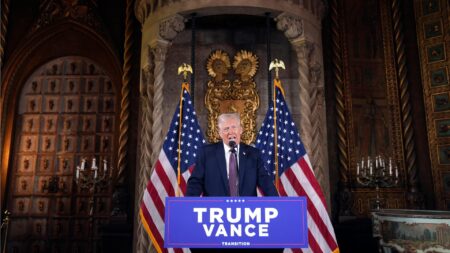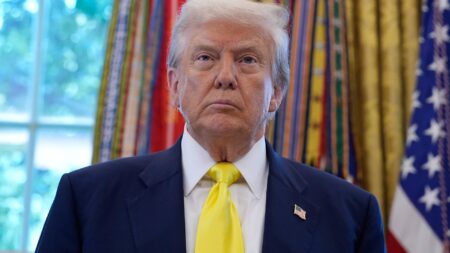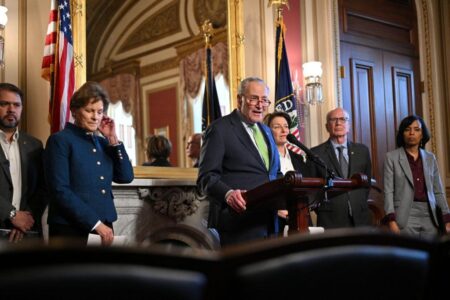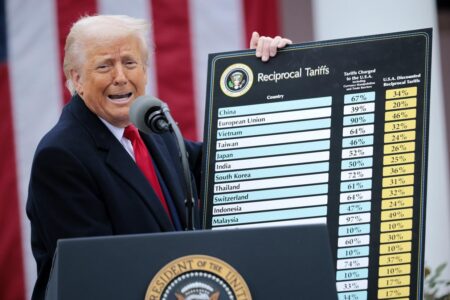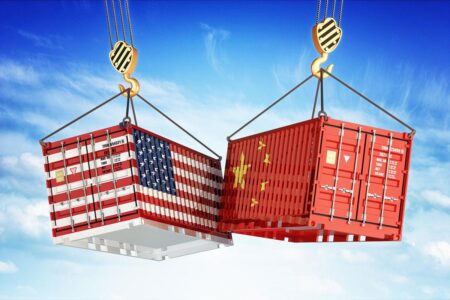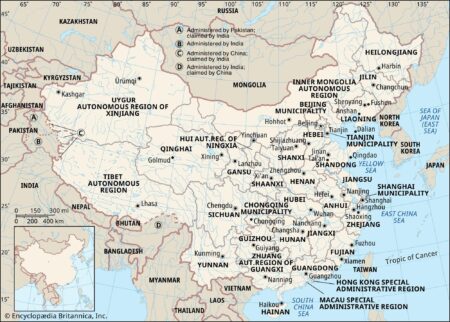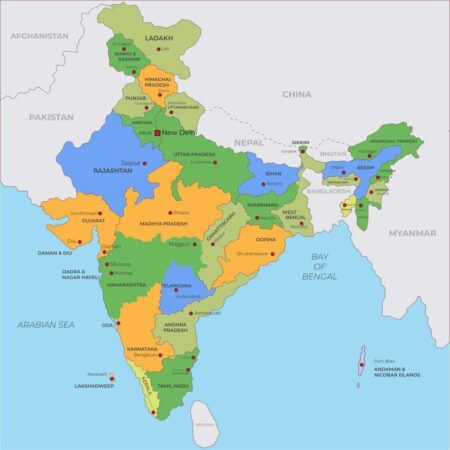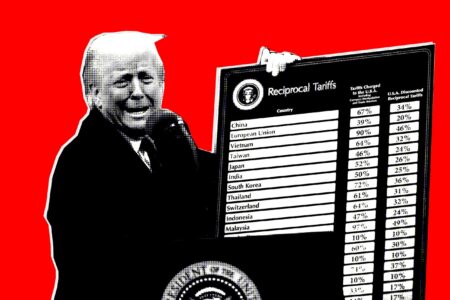The Canadian Federation of Independent Business is sounding the alarm: soaring tariffs in the Canada-U.S. trade war are threatening the survival of small businesses. They’re urging the government to take swift action to protect cross-border trade and secure our economic future
Browsing: tariffs
Trump’s tariff threats are sending shockwaves through the UK’s trade negotiations, putting a seamless post-Brexit deal at serious risk. Officials warn that these looming tariffs could strike key sectors hard, throwing ongoing talks into chaos
Argentina’s sudden cut in export duties has sent shockwaves through the Chicago Board of Trade (CBOT), sparking a surge of volatility as traders race to predict shifts in global commodity supply and prices
The US is preparing to impose new tariffs on pharmaceutical imports, kitchen cabinets, furniture, and heavy trucks, intensifying trade tensions. Stay tuned for live updates on how this bold move will impact industries and ignite reactions across the board
China has officially launched an investigation into Mexico’s tariffs on imports from Asia, sparking concerns over rising trade barriers and unfair practices. This bold move aims to address escalating tensions in their bilateral trade relationship directly
Trump’s steel tariffs are sparking a surge of counterattacks from US neighbors targeting China, ramping up trade tensions like never before. These daring moves highlight shifting alliances in the heart of a fierce global economic showdown
Former President Trump is preparing to unleash stronger tariff powers by imposing a 15% baseline tariff on Japanese imports. This bold strategy targets trade imbalances head-on and aims to turbocharge U.S. manufacturing, signaling a tougher, more determined stance toward Japan
Democrats warn that Donald Trump’s tariffs are driving India closer to Russia, risking the loss of vital U.S. influence and strategic alliances. Party leaders caution that this realignment could seriously undermine America’s economic strength and global leadership
Trump’s tariffs on Canadian goods have catapulted Mark Carney into the spotlight, challenging his ability to navigate escalating economic tensions and maintain stability amid intensifying trade disputes
China has firmly rejected former President Trump’s threat of 100% tariffs, declaring, “We don’t take part in wars.” This powerful statement underscores Beijing’s determination to steer clear of a dangerous escalation in trade tensions with the U.S
China has issued a strong warning to Mexico regarding its proposed tariff measures, accusing the country of yielding to U.S. pressure. This intensifying dispute highlights rising tensions amid ongoing trade negotiations, Bloomberg reports
As Tokyo navigates escalating tariff challenges, the Japan Mobility Show is shifting gears-stepping beyond the iconic giants Toyota, Honda, and Nissan to spotlight bold innovators and revolutionary mobility solutions that are steering the future of the industry
Former US President Donald Trump has eased his tariff position and reignited talks with Indian PM Narendra Modi, fueling excitement for a new era of partnership. Modi welcomed the move enthusiastically, hinting at the promise of deeper and stronger bilateral relations ahead
India has called on BRICS nations to confront trade deficits boldly, as the bloc unites in opposition to U.S. tariffs. This decisive move underscores growing economic cooperation amid rising global trade tensions, CNBC reports
Japan’s Prime Minister Shigeru Ishiba has just announced his resignation, following a historic breakthrough in securing a landmark U.S. tariff agreement. This bold move marks a dramatic shift in Japan’s economic leadership, NBC News reports
Eighty-eight postal operators worldwide have halted mail services to the US in a powerful stand against recent tariffs, sparking major disruptions in international shipments and escalating trade tensions, reports France 24
Japan enthusiastically embraces President Trump’s directive to cut tariffs on automobiles and other goods, igniting hope for stronger trade relations and exciting economic benefits for both nations, ABC News reports
Trump intensifies his attacks on India amid soaring tariff tensions, while analyst Bessent forecasts the Supreme Court will uphold the tariffs. Stay tuned for live updates on this heated trade showdown!
The Guardian explores how Donald Trump’s tariff war dramatically transformed global trade, unexpectedly amplifying China’s power while severely straining US-India relations. This editorial unravels the complex and far-reaching impacts on the geopolitical landscape
Trump’s tariff surge sends shockwaves through Brazil, rattling its economy and stirring environmental alarms. As trade barriers climb, Brazilian exports face mounting pressure, while ecological challenges deepen amid rapidly changing market forces

